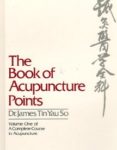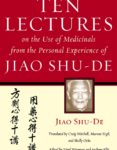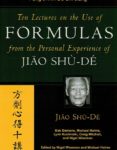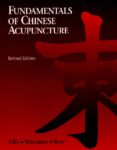Overview
Here is a text for scholars, for students of Chinese language and culture, and for those clinicians (particularly herbalists) who recognize a relationship between their clinical skill and their understanding of Chinese thought. The author, Hsu Ta-Chun, wrote in the 18th century immediately prior to the introduction of Western science and medicine to China. He achieved recognition and influenced the history of medicine because the medicine he championed was pristine in logic and method. In any period, or any culture, Hsu would have been a remarkable thinker. A literate, broadly skilled scholar, he practiced medicine as an expression of personal and social responsibility. Even with his articulate and profound attachment to classical ideas, he was able to recognize progress in medicine, while retaining an ability to critically examine popular ideas and modern physicians. He could both recognize others for their accomplishments, and scathe with uncompromising prose those whom he felt corrupted the art of medicine. He was a conservative who understood the practical necessities of patient care.
In his extensive prologue Unschuld includes a detailed analysis of Hsu’s work. We learn that Chinese medicine does differ from Western medicine, offering a holistic view of disease and the human who suffers. However, we also learn that Hsu and his European contemporaries would not have regarded one another as strangers. Hsu’s 100 essays are broad and fascinating. The scope of these essays gives us a view of Chinese medicine that is whole and inclusive. His discussions of illness, pathoconditions, formulas, and substances are often more lucid than the explanations offered by modern texts. Some are of particular interest to historians, philologists, and philosophers; others are of direct interest to clinicians. By speaking his opinions clearly and reporting on an art with which he was deeply intimate, Hsu has bequeathed us a richly detailed vision of Chinese medicine at its height. The essays read well and demonstrate that rigorous scholarship can draw back the curtains of time, language, and preconceived notion to reveal the mind and thought of an exceptional individual. By carefully selecting terms that are suitable for the variety of circumstances in which a Chinese character is used, Unschuld helps us to refine our understanding of important Chinese concepts.
Author Information
Paul U. Unschuld
Author / Translator: Chinese Life Science, Chinese Traditional Healing, Chinese Historical Healing Terminology, Dictionary of the Huangdi Neijin Suwen, Essential Subtleties of the Silver Sea: Yin-hai Jing-wei, Forgotten Traditions of Ancient Chinese Medicine, Huangdi Neijing Suwen, The Complete Translation: Huangdi Neijing Suwen, Learn to Read Chinse, Medicine in China Historical Artifacts and Images, Medicine in China: A History of Pharmceutics, Medicine in China: A History of Ideas, Medicine in China: Nan Ching Classic of Difficult Issues, What is Medicine?
Paul U. Unschuld is a leading teacher and advocate for teaching Traidional Chinese Medicine and Pharmacy. He is currently Professor and Director of the Horst-Goertz-Research Institute for the Theory, History, and Ethics of Chinese Life Sciences, Charite Universitatsmedizin Berlin. He was awarded a Doctorate in Sinology in 1974, a Masters of Public Health at John Hopkins University where he was a visiting professor. Between 1976 and 2006 he was Director for the History of Medicine at Ludwing-Maximilians University.
Acupuncture Today interviewed Dr. Unschuld in 2004, the transcript is found here.
Contents
Visited 1965 times , 6 Visits today






We feel that the value in this book is the detailed view of Chinese medicine at one of its heights. This is the work of a clinician famous both for his clinical expertise and for his advocacy for his art.
Ironically, many of the problems Hsu Ta-Chun discusses reappear in the modern era.